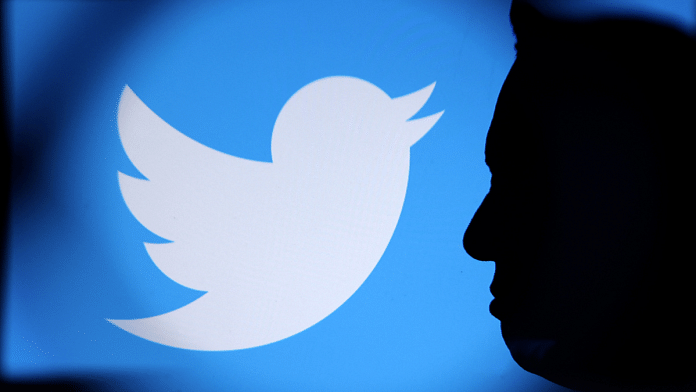Days after officially acquiring Twitter in a $44 billion deal, Elon Musk fired the entire Twitter accessibility team on 4 November. Earlier this week, a number of disabled employees started resigning from Twitter. Dmitry Borodaenko, a California-based former engineer manager, has now sued Twitter for banning the option to work remotely and forcing employees to return to office. The complaint says Twitter’s new policies go against the ‘reasonable accommodations’ enshrined in the Americans with Disabilities Act.
Over the last decade, Twitter has provided us, the Persons with Disabilities (PwDs) in India, with a level-playing field. The platform has allowed us to voice our opinions, express our concerns and sensitise the masses on our lifestyles, needs and desires. Thanks to Twitter, we know that if we are discriminated against, we do not need to remain silent anymore. When we have been denied entry in a public place, we can create public pressure to change attitudes. When we find our local grocery store or bank branch inaccessible, we can tweet about it to higher authorities – and that has led to change many times. Twitter has allowed PwDs to converse with and question politicians, give product feedback to CEOs and engage with celebrities and sportspersons.
Twitter itself realised the empowering role it was playing for PwDs. Always open to feedback, Twitter had a dedicated accessibility team working toward making the social networking site accessible to PwDs. Some of the innovations include alt text (image descriptions) for the blind, closed captions for the deaf, high contrast for those with low vision, and keyboard shortcuts for those with mobility challenges. It has allowed us to be visible and have a loud, engaging voice.
Considering the large number of PwDs logged into technology, the tech giants have realised that catering to persons with disabilities does not remain a CSR (corporate social responsibility) project but has become a business case for them. Microsoft, for example, looks at accessibility by design in their products. Their marque products – Windows, Office and Teams – are packed with accessibility features for all kinds of disabilities. Besides, Microsoft has also developed standalone apps and softwares such as Seeing AI for the blind and Eye Gaze for those with mobility disabilities. Google keeps screen readers in mind while developing all their websites and products. Google has also extensively worked on accessibility tool kits to help third-party developers make their Android apps accessible. Amazon has constantly innovated to make its products and services accessible to PwDs. Some examples include the Amazon Polly ‘text-to-speech’ service and dyslexic font in Kindle. Amazon’s Echo devices have helped people with mobility disabilities control their home. Apple has heavily invested in making the iOS accessible to the blind.
Also read: What’s missing in govt’s plan to secure ‘accessibility’ for persons with disabilities
Musk’s Twitter shouldn’t change course
In 2018, I was conducting a sensitisation workshop for the Delhi Police on how to interact with PwDs when a middle-aged police officer stood up and confessed that he had never met a person with a disability. This to me was the perfect example of how PwDs have been hidden and invisibilised in India. After all, while the World Health Organization (WHO) estimates 15 percent of the world population, which is more than one billion people, to be disabled, the Indian census has identified a meagre 2.21 percent of the country’s population as disabled. This is both because of the stigma in families to declare one of their own as disabled and the inability of census officials to ask questions around disability.
In such a scenario, Twitter was a boon for India’s PwD community which found a platform to challenge its continued invisibilisation from public discourse and even policies. And it was possible primarily because Twitter had a dedicated team that worked solely on making the platform accessible to the disabled.
But Musk’s decision to fire the team has sent a chill down the spine for PwDs. Do we fit into Twitter’s future vision? Will the site continue to be as welcoming toward PwDs as it has been in the past? There are reports that the site itself might shut down. Or go bankrupt. Will we be forced to go back into hiding again?
Considering how Elon Musk has run his businesses so far – transforming online payments with Paypal, bringing electric cars to the forefront with Tesla (which was on the verge of bankruptcy in 2008 and again in 2019 before becoming the world’s most valuable car company), and making people dream about space travel with SpaceX – I hope we are wrong about Twitter and what we are witnessing is the storm before the peace. After all, Musk openly talked about growing up with Asperger’s syndrome on a TV show, becoming a role model for many around the world. His company Neuralink is developing a technology that could “help study and treat neurological disorders” such as Parkinson’s.
So let’s hope you’re right, Elon. Let’s hope Twitter becomes the empowering “public town square” you envision it to be for the world. For we, the Persons with Disabilities, have been silenced too long and cannot afford Twitter failing.
Nipun Malhotra is a diversity & inclusion consultant and disability rights advocate. He is the founder of Nipman Foundation. He tweets @nipunmalhotra. Views are personal.
(Edited by Prashant)



